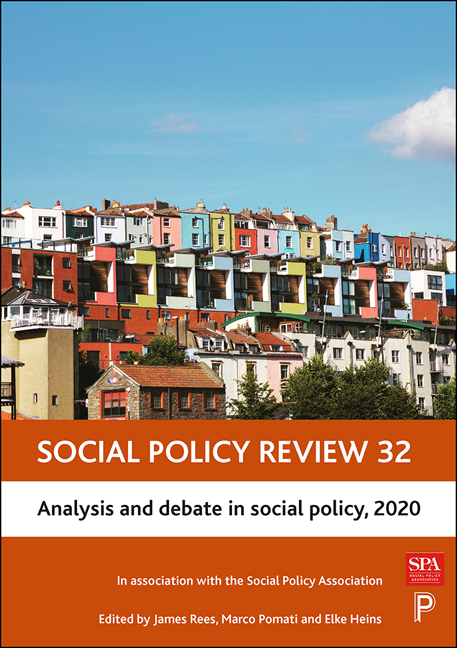11 - No Way Home: the Challenges of Exiting Homelessness in Austere Times
Published online by Cambridge University Press: 18 March 2021
Summary
Introduction
In 2010, and in the wake of a global financial crisis, the Conservativeled Coalition government implemented an unprecedented drive of austerity measures. This included radical reforms to housing and welfare policies, as well as indirect cuts via a drastic reduction to local government budgets (Levitas, 2012). That the UK austerity programme has been presented by the government both as a ‘necessary evil’ in a time of economic hardship and as something that ‘we are all in together’ (Cameron, 2010) has served to mask the highly uneven manner in which it has translated, and continues to translate, into people's everyday lives (Hitchen, 2016; Strong, 2018). Thus, for researchers seeking to fully understand the implications of austerity, emphasis must be placed on examining the lived experiences of those bearing the brunt of the cuts to public services.
Drawing on interviews with single homeless people and practitioners living and working in homelessness accommodation projects, this chapter explores the ways in which austerity manifests at the ‘street level’ for a particularly poor and marginalised population. While existing research has assessed the impact of recent housing and welfare reforms on those at risk of or transitioning into homelessness and those sleeping rough (Fitzpatrick et al, 2016; Johnsen et al, 2016; Wilson and Barton, 2019), this chapter offers additional insight by placing focus on the implications of austerity for transitions out of homelessness. The data presented in this chapter reveal the ways in which austerity-driven policies are actively hindering service users’ efforts to move beyond homelessness and leaving them increasingly susceptible to longer-term cycles of instability.
Policy context
Since 2010, significant upward trends have been recorded across all forms of homelessness. The number of statutory homelessness acceptances, that is, households to whom the local authority have a duty to secure accommodation, stood at 56,600 in 2017/18. While a small reduction on the previous year, this is an overall increase of 42 per cent since 2009/10 (Fitzpatrick et al, 2019). However, this represents only the tip of an increasingly large iceberg. Latest figures indicate a significant rise between 2009/10 and 2017/18 in instances of rough sleeping (165 per cent) and sofa surfing (26 per cent) (Fitzpatrick et al, 2019).
- Type
- Chapter
- Information
- Social Policy Review 32Analysis and Debate in Social Policy, 2020, pp. 249 - 270Publisher: Bristol University PressPrint publication year: 2020



